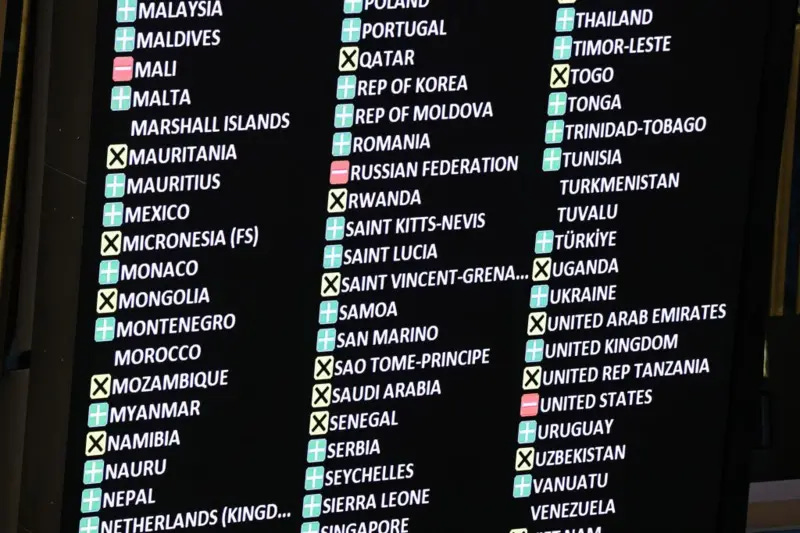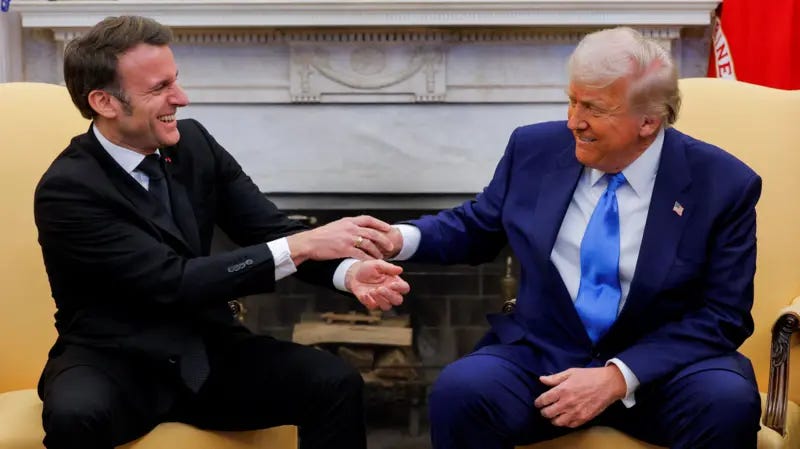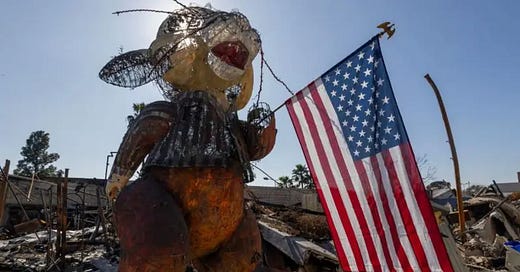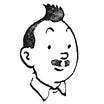“Trump thinks like Putin.” As Washington cosies up to Moscow, are we witnessing the end of the ‘liberal world order’?
For the three years since the full-scale invasion of Ukraine, the United States and its allies have treated Russia as an international pariah, guilty as charged of violating international law.
Donald Trump has turned matters on their head: re-establishing relations with Moscow, while refusing to call Russia an aggressor – or declare Ukraine the victim in the war.
For some, it seems as though the ‘liberal world order’, with its roots in the 1990s, has breathed its last. BBC Russian seeks a diagnosis from experts in international relations.
The Era of Liberal Hegemony
Speaking at Warsaw’s Royal Castle in February 2023, US President Joe Biden described the war in Ukraine as a "great battle for freedom” waged between the rules-based order, and an order based in raw power.
By launching the full-scale invasion of Ukraine, Russia not only breached international law in the eyes of most nations, but also threw down the gauntlet to a way of conducting global affairs anchored by the United States.
The term ‘liberal world order’ encapsulates a system of international relations built on commitments, principles, and norms. At its core lie international law and institutions such as the United Nations, its General Assembly, and the UN Security Council.
The United Nations Charter sets out fundamental principles governing relations between countries, including respect for sovereignty and territorial integrity, the peaceful resolution of disputes, and the rejection of force. It also enshrines human rights. Each UN member state—of which there are 193 in total—is bound by these principles.

The liberal world order also a specific set of values, such as free trade, upheld by institutions like the World Trade Organization, the International Monetary Fund, and the World Bank.
The overarching assumption is the ideological belief that Western liberal democracy represents the best model of government.
The 1990s witnessed the flourishing of this idealised state of affairs, as dozens of nations across three continents embraced market reforms and, at least in theory, democratic governance. While many only paid lip service to liberal values, manydeveloping nations benefited economically from access to global markets—China’s GDP, for instance, grew at an average of 9% annually for a decade, while Ireland, India, South Korea, Argentina, Chile, and others also prospered.
This period also witnessed the resolution of multiple long-standing and violent conflicts, including the decades-long struggle between Basque separatists and the Spanish state, the Troubles in Northern Ireland, Eritrea’s war for independence, and the civil war in Lebanon. Many of these disputes had beendirectly or indirectly connected to the Cold War rivalry between the United States and the Soviet Union.
As the Cold War drew to a close, the U.S. emerged as the world's sole superpower, frequently acting as a mediator in international conflicts. Between 1990 and 2015, more than 1,100 peace agreements were concluded.
Violations of international law can be officially designatedthrough UN General Assembly resolutions or rulings of the International Court of Justice. The UN Security Council can then impose economic sanctions or, in extreme cases, authorise military action.
In practice, sanctions and military interventions are often undertaken without UN approval—something Russia has long criticised. Speaking at the 2007 Munich Security Conference, Russian President Vladimir Putin declared: "The use of force can only be considered legitimate if sanctioned by the UN. And we do not need to substitute the United Nations with NATO or the EU."
Yet since the 2008 Russo-Georgian war, Russia too has employed military force without UN authorisation. From the Western perspective, Putin’s aggression against Ukraine represents the most blatant violation of the rules-based order since the Cold War.
“We’ve seen really three types of hardcore principles of order that have been violated,” G. John Ikenberry, Professor of Politics and International Affairs at Princeton University, told the Financial Times.
“One is that you don’t use force to change territorial borders. Secondly, you don’t use violence against civilians as an instrument of war. And thirdly, you don’t threaten to use nuclear weapons. And Putin has done the first two and has threatened the third. So this is a true crisis for rule-based order.”
In response to Western accusations, Russian diplomacy has made criticism of the liberal order one of its most belovedthemes. Russia’s foreign minister Sergey Lavrov argues that the western approach has no regard for international law and UN institutions, offer in their place mere arbitrary rules that lack any basis in treaties.
Moscow frequently points to NATO’s 1999 bombing of Yugoslavia, the U.S.-led invasion of Iraq in 2003, and the 2008 recognition of Kosovo’s independence as examples of Western actions taken without UN Security Council approval—violations, Russia argues, of the very principles enshrined in the UN Charter.

One of the biggest contemporary tests of the liberal world order was Washington’s stance on the Israel-Hamas conflict. Many countries have sharply criticised the Biden administration for its military support of Israel, accusing Washington of indifference to the deaths of tens of thousands of Palestinians.
“It is very clearly hypocrisy, a double standard,” said Numan Kurtulmus, the speaker of Turkey’s parliament, in an interview with the Washington Post. “It’s a kind of racism, because if you don’t accept Palestinian victims as equal to Ukrainian victims, it means you want to create a kind of hierarchy within humanity. This is unacceptable.”
Ikenberry acknowledges that the liberal world order "was very much tied to the United States, the US dollar, the US economy. It was NATO and the alliances more than it was the UN Security Council." In sum, he says, one can think of it as the “liberal hegemony” of the United States of America.
America’s shift from enforcer to disruptor
Countries seeking to challenge the existing international order are traditionally labelled revisionist powers. US policymakers and analysts have long applied the term to China and Russia, arguing that both nations seek to diminish American influence on the global stage.
Competition with such revisionist powers was identified as one of the greatest threats to American prosperity in a key national security document adopted in Trump’s first term.
“China and Russia want to shape a world consistent with their authoritarian model—gaining veto authority over other nations’ economic, diplomatic, and security decisions” declared the National Defense Strategy.
But in recent months, says Professor Ikenberry, it’s the United States itself that has turned into the world’s leading revisionist power. According to him, Trump’s administration is working to dismantle “almost every element of the liberal international order — trade, alliances, migration, multilateralism, solidarity between democracies, human rights.”
“My administration is making a decisive break with the foreign policy failures of the past administration and, frankly, the past,” Trump stated. Unlike other radical changes introduced by his team, the shift will be especially hard for Congress and the judiciary to block, since foreign policy falls squarely under the president’s authority.
In January, Secretary of State Marco Rubio lashed out at those who thought the liberal world order might replace a foreign policy centred on national interests. “This wasn’t just a fantasy; it was a dangerous delusion,” Rubio said in an address to the Senate.
It is precisely by framing it in terms of America’s interest that the Trump administration has justified the move towards rapprochement with Russia.
“We believe the continued conflict is bad for Russia, bad for Ukraine, and bad for Europe. But most importantly, it is bad for the United States,” wrote Vice President J.D. Vance in a tweet on X.
In his January inaugural address, Trump pledged to restore America’s status as the world’s most powerful nation, reclaim control over the Panama Canal, and even expand the territory of the United States.
Trump’s diplomatic revolution remains his least popular policy, however. A recent poll showed Americans like his immigration policies above all else, while his stance on the Ukraine war and the Israel-Palestine conflict garners the least support.
Meanwhile, more than two-thirds consider Ukraine and ally or friendly state, with nearly half giving a favourable opinion of President Volodymyr Zelensky.
Trump’s diplomatic upheaval
“As of February 2025, it is now the United States that threatens to upend this rules-based order,” states Dr. Julie Newton, Research Fellow in Russian and Eurasian Studies Centre at the University of Oxford.
As evidence, she points to Trump’s demands for control over Ukraine’s natural resources; the apparent normalisation of relations with Russia; the president’s public attacks on Zelensky;and the support of his allies for hard-right parties in Europe.
On February 24, the third anniversary of Russia’s full-scale invasion of Ukraine, the United States voted against a UN General Assembly resolution condemning Russian aggression and its occupation of Ukrainian territory.

In its place, American diplomats proposed a blander statement, "mourning the tragic loss of life throughout the Russian Federation-Ukraine conflict." Meanwhile, Trump announced that he was in talks with Putin about restoring economic ties between Washington and Moscow.
“Whether this moment resembles a new Munich Agreement or, perhaps, a new Molotov-Ribbentrop Pact,” Newton added,“Trump’s diplomatic revolution is shattering the principles of the Helsinki Charter and positioning the U.S. as an adversary in the eyes of its own allies.”
The Helsinki Accords of 1975 were agreements between the United States, the Soviet Union, and the nations of Europe aimed at reinforcing the principles of territorial integrity, the inviolability of borders, and non-interference in one another’s internal affairs.
"Trump thinks like Putin—like a 19th-century imperialist," according to Sergey Radchenko, a Cold War historian at John Hopkins University.
He compares the current situation to the Yalta Conference of 1945, when the US, the USSR, and the UK divided Europe into spheres of influence following World War II. But while thenmuch of Europe lay in ruins, today it is a union of some of the world’s wealthiest nations, including two nuclear powers.

"Europe has significant economic strength and the financial tools to pressure Russia," Radchenko notes. "No matter how far Trump takes his dialogue with Putin, it’s hard to imagine European countries normalising relations with Russia in parallel."
It is too soon to declare an end of the liberal world order, according to Shelby Magid of the Atlantic Council’s Eurasia Center. US sanctions on Russia are still in place and the Trump administration has suggested they will only be lifted if Russia ends the war in Ukraine.
"I agree that there is a risk of premature and dangerous normalisation, but we are not fully there yet," Magid said. "Ultimately, the lasting impact on the world order will be determined more by how the war concludes and peace is enforced than by the path to that outcome."
Read this story in Russian here.
Translated into English by Danny Booth.
SPECIAL REPORT: “Russia should leave”: Is there a future for Moscow in the new Syria?
“Russia's crimes here were indescribable,” says Ahmed Taha, a key rebel commander in the city of Douma, six miles north-east of Damascus. “It was indescribable criminality.”







